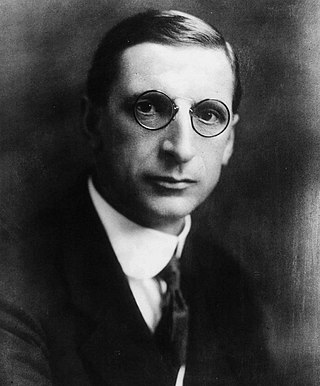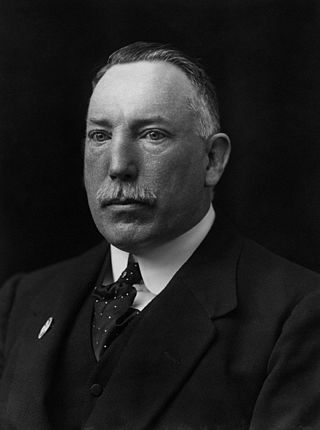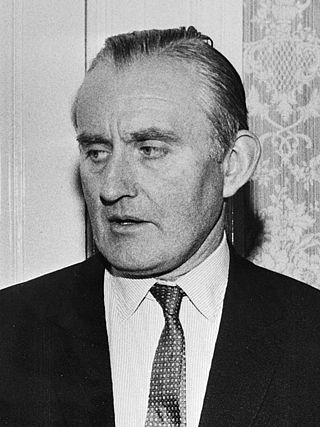Related Research Articles

The 1918 Irish general election was the part of the 1918 United Kingdom general election which took place in Ireland. It is a key moment in modern Irish history because it saw the overwhelming defeat of the moderate nationalist Irish Parliamentary Party (IPP), which had dominated the Irish political landscape since the 1880s, and a landslide victory for the radical Sinn Féin party. Sinn Féin had never previously stood in a general election, but had won six seats in by-elections in 1917–18. The party had vowed in its manifesto to establish an independent Irish Republic. In Ulster, however, the Unionist Party was the most successful party.

East Antrim is a parliamentary constituency in the United Kingdom House of Commons. The current MP is Sammy Wilson of the DUP.

Belfast East is a parliamentary constituency in the United Kingdom House of Commons. The current MP is Gavin Robinson of the DUP.

North Down is a parliamentary constituency in the United Kingdom House of Commons. The current MP is Stephen Farry of the Alliance Party. Farry was elected to the position in the 2019 general election, replacing the incumbent Sylvia Hermon. Hermon had held the position since being elected to it in the 2001 general election, but chose not to contest in 2019.
Queen's University of Belfast was a university constituency represented in the House of Commons of the United Kingdom Parliament from 1918 until 1950.
William John Stewart was a Unionist politician in Northern Ireland who formed a Progressive Unionist Association to protest "autocratic" tendencies in the Unionist government and its lack of action on unemployment.

Sir Thomas Wallace Russell, 1st Baronet, was an Irish politician and agrarian agitator. Born at Cupar, Fife, Scotland, he moved to County Tyrone at the age of eighteen. He was secretary and parliamentary agent of the Irish temperance movement and became well known as an anti-alcohol campaigner and proprietor of a Temperance Hotel in Dublin.
Captain Alexander Crawford Browne was an Ulster Unionist Party politician.
Arthur Black PC(NI) KC was an Irish barrister, judge and Ulster Unionist Party politician.
Charles Curtis Craig was an Irish Unionist and later Ulster Unionist politician. He was Member of Parliament (MP) for constituencies in County Antrim from 1903 to 1929, taking his seat in the House of Commons of the United Kingdom. The son of James Craig, of Craigavon, Belfast, a self-made millionaire whisky distiller, among his brothers was Northern Ireland's first Prime Minister, James Craig.
Sir Joseph McConnell, 2nd Baronet, was an Ulster Unionist politician. He was Member of Parliament (MP) for Antrim from 1929 to 1942.

Elections were held in January and June 1920 for the various county and district councils of Ireland. The elections were organised by the Dublin Castle administration under the law of the then United Kingdom of Great Britain and Ireland (UK), and held while the Irish War of Independence was pitting UK forces against those of the Irish Republic proclaimed in 1919 by the First Dáil. Elections were held in two stages: borough and urban district councils in January; and county and rural district councils in June. Sinn Féin, which had established the First Dáil, won control of many of the councils, which subsequently broke contact with Dublin Castle's Local Government Board for Ireland and instead recognised the republican Department of Local Government. The election results provide historians with a barometer of public opinion in what would be the last elections administered on an all-island basis: the Government of Ireland Act 1920 passed at the end of the year effected the partition of Ireland from 1921, though the elections for the two home rule Parliaments envisaged by it were held on the same day; No further elections would be held simultaneously across the island of Ireland until 1979, when representatives of the Republic of Ireland and Northern Ireland to the European Parliament were elected. The next local elections were held in 1924 in Northern Ireland and in 1925 in the Irish Free State.

The 1924 United Kingdom general election in Northern Ireland was held on 29 October as part of the wider general election in the United Kingdom. There were ten constituencies, seven single-seat constituencies with elected by FPTP and three two-seat constituencies with MPs elected by bloc voting.

The 1970 United Kingdom general election in Northern Ireland was held on 31 March with 12 MPs elected in single-seat constituencies using first-past-the-post as part of the wider general election in the United Kingdom. It was the first general election held after the Representation of the People Act 1969 which reduced the voting age from 21 to 18.

The February 1974 United Kingdom general election in Northern Ireland was held on 28 February with 12 MPs elected in single-seat constituencies using first-past-the-post as part of the wider general election in the United Kingdom.

The October 1974 United Kingdom general election in Northern Ireland was held on 10 October with 12 MPs elected in single-seat constituencies using first-past-the-post as part of the wider general election in the United Kingdom.

The 1983 United Kingdom general election in Northern Ireland was held on 9 June with 17 MPs elected in single-seat constituencies using first-past-the-post as part of the wider general election in the United Kingdom. This was an increase of five seats, after the House of Commons Act 1979 had come into effect to account for the reduced representation after direct rule had been imposed since 1972.
Winston Churchill, who served in a multitude of ministerial positions between 1908 and 1952, including as Prime Minister of the United Kingdom from 1940 to 1945 and again from 1951 to 1955, and as a Member of Parliament (MP) for five different constituencies between 1900 and 1964, except for a break in 1922–24.
References
- ↑ Craig, F. W. S. (1983) [1969]. British parliamentary election results 1918–1949 (3rd ed.). Chichester: Parliamentary Research Services. p. 675. ISBN 0-900178-06-X.
- ↑ Walker, Brian M., ed. (1992). Parliamentary election results in Ireland, 1918–1992. Dublin: Royal Irish Academy. p. 19. ISBN 0-901714-96-8.
- ↑ Leigh Rayment's Historical List of MPs – Constituencies beginning with "Q"